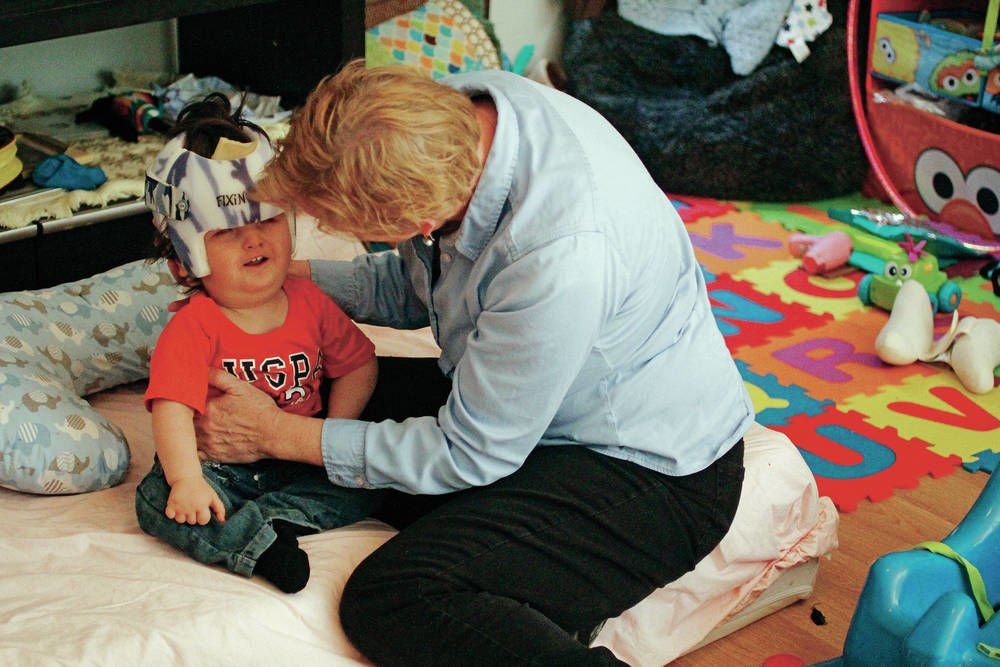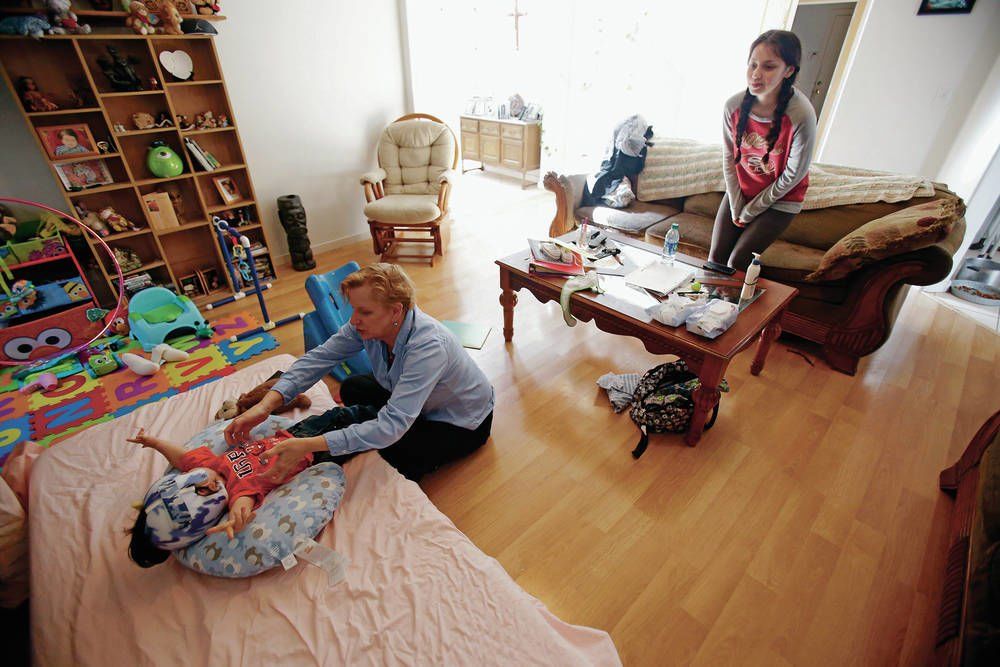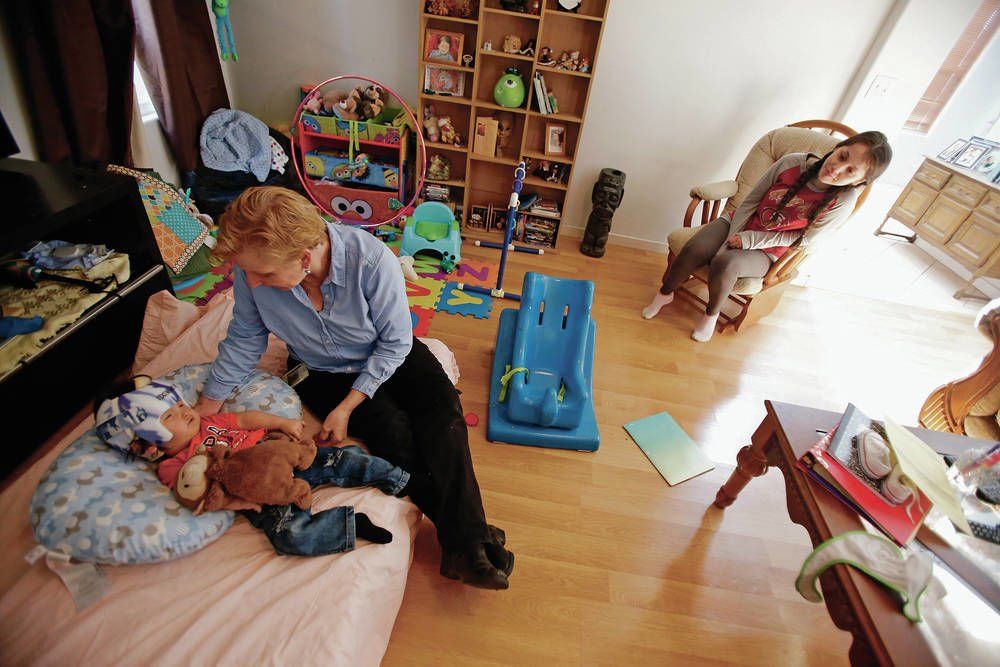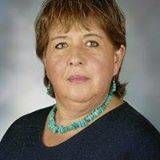Kids with disabilities get a hand up in New Mexico
Kids with disabilities get a hand up in New Mexico
When she gave birth to a daughter with undeveloped ear canals nearly four decades ago, Rosario Román had many questions: How did this happen? How do we hear? Would her infant ever hear?
She left the hospital with no answers and unsure of where to find them.
Those were the days before the federal government began requiring states to offer early intervention services for infants and toddlers who show signs of disabilities. Since then, New Mexico has developed a robust program that offers screenings and an array of home-based diagnostic services and therapy for children 3 and under, at no cost to families.
Román, a Bolivian who was raising a family in Albuquerque, was forced to address her newborn’s hearing impairment on her own. A tenacious mother, she took 2-month-old Elizabeth, her third child, to an audiologist. The doctor determined Elizabeth could detect sounds with her inner ear but would need a hearing aid to make full use of the sense.
Such a device was only designed for children 5 and older, the doctor said. It couldn’t serve a tiny infant.
“I said, ‘Show me what you have,’ ” Román recalled.
The doctor handed her the small microphone, which fit in a child’s pocket, and the headband that held the earpieces. Román envisioned a redesign — a hearing aid with a smaller headband — and told the doctor she would fashion a tiny vest for Elizabeth and secure the microphone inside.
“He said, ‘I don’t think it’s going to work.’ I said, ‘I don’t care. It’s my money. Just do it.’ …
“This is the Bolivian in me,” Román added with a laugh. “We fix things and make something out of anything.”
Román, who was inspired by her daughter to pursue a master’s degree in speech pathology, now runs her own business serving people with disabilities and offering training for workers in the field. She puts a particular focus on adapting services to complement a family’s cultural traditions and beliefs. The company’s bilingual therapists communicate with families, as much as possible, in their native languages.
“We believe that not one shoe fits all,” she said, adding that culture and language have a huge impact on a child’s development.
Román’s company, Bilingual Multicultural Services Inc., took a leap forward in October, when it was awarded a state contract through New Mexico’s Family Infant Toddler Program to serve families with young children in Bernalillo, Sandoval and Santa Fe counties. It began providing the government-funded, in-home early intervention services in January.
“My dream has always been that we need to do this,” Román said. “… It’s providing the families with the services they need in their natural environment.”
The earlier a young child’s developmental delay or disability is diagnosed and addressed, she said, the better the outcome: “Sometimes 90 percent of the kids are almost up to power with the other kids by the time they go to preschool.”
Santa Fe County now has three FIT Program providers. Along with BMSI are New Vistas, which has offered the critical services for at least three decades, and Las Cumbres Community Services, which began contracting with the state in July to provide services in Santa Fe.
Las Cumbres has offered the program in Rio Arriba and Los Alamos counties since the early 1990s.
The expanded options for new parents in Santa Fe County follows a shake-up a couple of years ago at New Vistas, then the sole provider of FIT services. Fearing layoffs and contract terminations amid management changes, a score of staff members and therapists left the organization between the summer of 2015 and the summer of 2016, nearly derailing a highly rated program that served about 500 children a year in the county.
Executives and board members said the problems were rooted in declining state and federal revenues.
Meanwhile, parents complained that their calls to New Vistas were going unanswered and workers who remained at the organization were too overbooked to schedule home visits. Babies and toddlers in need of speech therapy, physical therapy and other care were aging out of the program without receiving help. Some parents and therapists who spoke with The New Mexican called the situation a crisis for kids.
In June 2016, monitors with the state Health Department, which oversees FIT, found a series of violations at New Vistas and directed the directed the organization to develop new policies and procedures and a more rigorous training plan.
A Health Department official warned the organization in a letter that if it failed to comply, it could lose its license and face financial penalties.
The following year, a review by Health Department monitors found a few issues of noncompliance and gave New Vistas an overall rating of “needs intervention,” according to a letter dated Dec. 29, 2017. But the evaluation noted improvements and efforts by staff to correct the problems.
“We really took the challenges we faced two years ago, and we took that as an opportunity to improve,” said Sarah Michaud, executive director of New Vistas since August. She stepped into the job after first serving as deputy director during the shake-up.
There’s been a steady increase in demand for early intervention services in the county in the last few years, Michaud said. “We’re at a point that we really welcome the two new providers in the community.”
Amanda Garcia, manager of Las Cumbres’ FIT services, said the vital program welcomes any newborn or young child. Parents with concerns don’t need a doctor’s referral to schedule a free evaluation for their child. She encourages parents to embrace the opportunity.
Garcia was introduced to the program seven years ago, after her daughter was born prematurely. She was referred to Las Cumbres.
“I feel that they gave her a lot of support,” Garcia said, adding that her daughter showed no signs of delay after age 2. “If we wouldn’t have gone through services, I wonder if we could have seen the same level of progress.”
Garcia was so impressed with the program that she decided to pursue a career in early intervention.
For Román, speech pathology was a third career path. She arrived in Albuquerque from Bolivia in 1973 to study nursing at The University of New Mexico. That was her father’s dream, not hers, she said.
Isolated in a place with a language and customs that were strange to her — “A burrito I thought was donkey’s meat,” she joked — she eventually switched her focus to accounting. Numbers, she said, she could manage in any language.
Before she finished her degree, however, Román got married, began working in business and had two children. When Elizabeth was born, she decided to stay home and help the girl manage her hearing impairment.
When Elizabeth entered first grade, Román said, she returned to UNM to finish her bachelor’s degree and then earned her master’s in speech pathology. She graduated in 1992 and launched her business not long after.
It began with a staff of four new graduates, Román said. “Now we’re 130 — therapists as well as staff.”
Her company has served clients in several Native American schools as well as immigrant families. Many of her families are struggling with poverty.
Workers must tread carefully in addressing a child’s special needs, she said. Many parents are reluctant to admit their child might have a delay or disability, and are hesitant to allow strangers into their home to work with their child.
“How do you ask the right questions without making them feel guilty?” Román said. “How do you get the best information from the parents, looking with their eyes, not yours?”
Nadine Maes, whose son Ben began working with Román when he was an infant, can attest to the benefits of early intervention.
Ben, who has Down syndrome, graduated from high school in Rio Rancho last May, Maes said, “and he’s living a wonderful life.” He was voted homecoming king at the school in his senior year, she said, and still works as the manager of the football team. He also has a hospital internship and is active in local politics.
Maes credits Román’s help with Ben’s language skills in giving him a boost at school and in life.
Early intervention was the key to her son’s success, Maes said. “I’m a big believer in the services.”
Román, like Garcia, urges parents to reach out to a FIT provider — and not to wait. “There should never be waiting,” she said, “because we’re missing precious time.
“Why wait and wonder? If you think your child may not be developing like others,” she said, “… The evaluation is free. Just call.”
Contact Cynthia Miller at 505-986-3095 or cmiller@sfnewmexican.com.
FIT providers
• Bilingual Multicultural Services Inc.: bestsupportteam.org; 505-266-5557; 104 Monterey Drive, Room 15, in the United Way Early Learning Center at Kaune
• Las Cumbres Community Services: lascumbres-nm.org; 505-955-0410; 1911 5th St., Suite 100
• New Vistas: newvistas.org; 505-471-1001; 1205 Parkway Drive, Suite A.






